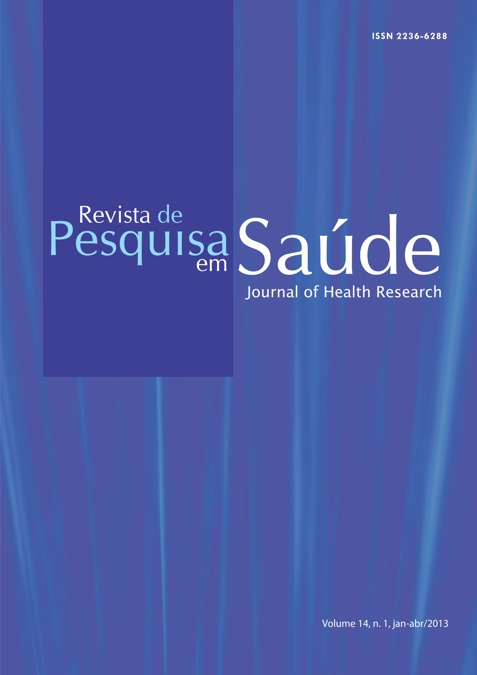VAGINOSE BACTERIANA RECORRENTE: ATUALIDADES NO MANEJO TERAPÊUTICO / RECURRENT BACTERIAL VAGINOSIS: UPDATES IN THERAPEUTIC MANAGEMENT
DOI:
https://doi.org/10.18764/Resumo
Introdução: A Vaginose Bacteriana (VB) é uma enfermidade comum e muito prevalente. Decorre do desequilíbrio da flora vaginal, com redução populacional de Lactobacilos e colonização por bactérias patogênicas. Apresenta recorrência significativa com o tratamento convencional monoterápico e necessita de maior compreensão fisiopatogênica para melhor terapêutica. Objetivo: Demonstrar os principais regimes terapêuticos para o tratamento da vaginose bacteriana, enfocando as terapias mais recentes para o controle da recorrência. Métodos: Estudo bibliográfico a partir dos termos: vaginose bacteriana, vaginose bacteriana recorrente e tratamento da Vaginose Bacteriana. Resultados: Apesar dos regimes terapêuticos confiáveis com antibióticos, como Metronidazol® e Clindamicina®, percebe-se falha importante no controle da enfermidade, atribuída ao desenvolvimento de resistência bacteriana. Outros fatores podem ser incluídos, como predisposição genética, hábitos sexuais, mas nenhum é suficientemente convincente para explicar a fisiopatogênese da doença. A maioria das terapias combinadas com os antibióticos tradicionais apresenta bons resultados na diminuição da recorrência. Os probióticos, em especial Lactobacillus, mostraram-se eficazes na prevenção da Vaginose Bacteriana recorrente quando em associação ao antibiótico tradicional. Os prebióticos também são substâncias que podem melhorar o sucesso na terapia de casos recorrentes. Conclusão: Não obstante a recomendação de monoterapia para o tratamento a utilização de outras substâncias, como os probióticos, é recomendada para adição ao arsenal terapêutico, considerando a diminuição significativa da recorrência de Vaginose Bacteriana em pacientes tratadas com terapia combinada.Palavras-chave: Vaginose bacteriana. Antibióticos. Terapêutica. Probióticos.
Abstract
Introduction: Bacterial vaginosis (BV) is a common and very prevalent disease. It is an imbalance of the vaginal flora with a reduction of Lactobacilli concentration and colonization by pathogenic bacteria. It presents significant recurrence with conventional monotherapy and that is why its physiopathogenicity needs to be more understood for a better therapy. Objective: To demonstrate the main therapeutic approaches for the treatment of Bacterial vaginosis, focusing on newer therapies for the control of recurrence. Methods: A literature review using the terms: bacterial vaginosis, recurrent bacterial vaginosis and treatment of bacterial vaginosis. Results: Despite the reliable therapeutic approaches with antibiotics such as metronidazole and clindamycin, it is still seen failure in controlling this disease because of bacterial resistance. Other factors may be included, such as genetic predisposition, sexual habits. However, none of these factors is sufficiently convincing to explain the pathophysiology of the disease. The majority of combined therapy with traditional antibiotics presents good results in the reduction of recurrence. The probiotics, especially lactobacillus, were effective in preventing recurrent BV when in combination with traditional antibiotics. The prebiotics are also substances that can improve the success of therapy in recurrent BV. Conclusion: Despite the recommendation of monotherapy for the treatment of Bacterial vaginosis, the use of other substances, such as probiotics, is recommended for addition to the therapeutic arsenal because of the significant reduction in the recurrence of BV in patients treated with combined therapy.
Keywords: Bacterial vaginosis. Antibiotics. Therapeutics. Probiotics.
Downloads
Não há dados estatísticos.
Downloads
Como Citar
Ferreira, E. C. M. F., Ferreira, T. R. F., Mascarenhas, T. S., Costa, J. P. L., Brito, L. M. O., Chein, M. B. da C., & Brito, H. O. (2013). VAGINOSE BACTERIANA RECORRENTE: ATUALIDADES NO MANEJO TERAPÊUTICO / RECURRENT BACTERIAL VAGINOSIS: UPDATES IN THERAPEUTIC MANAGEMENT. Revista De Pesquisa Em Saúde, 14(1). https://doi.org/10.18764/
Edição
Seção
Artigo de Revisão / Review Article
Licença

Este trabalho está licenciado sob uma licença Creative Commons Attribution 4.0 International License.







